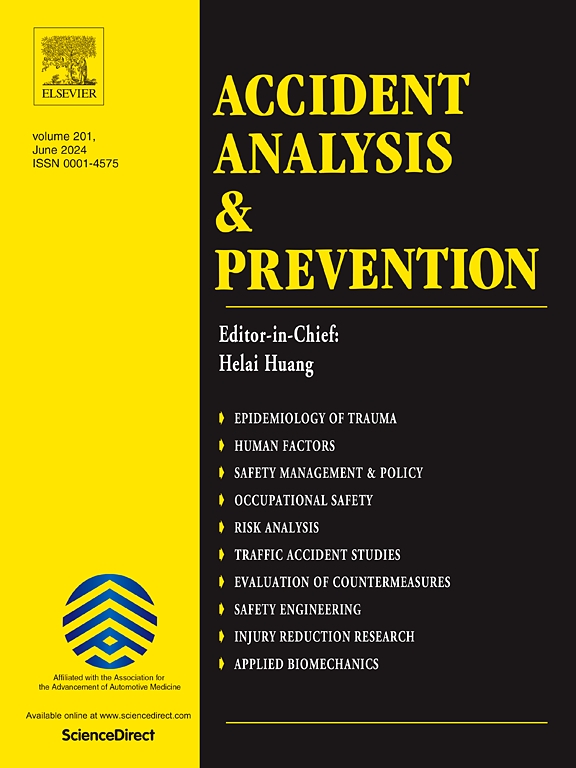A secure and privacy-preserving authentication framework for Connected and Autonomous Vehicles based on DRG-PBFT and zero-knowledge proof
IF 6.2
1区 工程技术
Q1 ERGONOMICS
引用次数: 0
Abstract
Connected and Autonomous Vehicles (CAVs) are pivotal to advancing Intelligent Transportation Systems (ITS) but introduce significant security and privacy challenges, particularly in dynamic environments requiring real-time data exchange. The existing security measures and consensus mechanisms, such as Practical Byzantine Fault Tolerance (PBFT), are susceptible to various attacks, including identity forgery, unauthorized access, and compromised safety testing, and suffer from scalability and latency issues. This study addresses these challenges by proposing a Dynamic Reputation Grouping-based PBFT (DRG-PBFT) approach, integrated with Simulation Extractable Zero-Knowledge Succinct Non-Interactive Arguments of Knowledge (SE-ZK-SNARKS). The proposed framework leverages reputation-based dynamic grouping to enhance consensus efficiency and reduce communication overhead. SE-ZK-SNARKS provide anonymity and privacy-preserving identity authentication, enabling CAVs to prove their legitimacy without revealing sensitive information. The proposed framework has been validated through extensive simulations using the NS-3 network simulator integrated with blockchain. The simulation results demonstrate that our proposed approach outperforms existing methods, achieving reduced consensus latency, communication overhead, authentication time and improved throughput. Overall, the findings and methodologies presented in this study address critical challenges in securing CAV communications while maintaining scalability and efficiency and can serve as a valuable reference for researchers and practitioners aiming to improve the safety and reliability of CAVs in real-time environments.
基于DRG-PBFT和零知识证明的网联自动驾驶汽车安全、隐私保护认证框架
网联和自动驾驶汽车(cav)对于推进智能交通系统(ITS)至关重要,但也带来了重大的安全和隐私挑战,特别是在需要实时数据交换的动态环境中。现有的安全措施和共识机制,如实用拜占庭容错(PBFT),容易受到各种攻击,包括身份伪造、未经授权的访问和破坏的安全测试,并受到可伸缩性和延迟问题的影响。本研究通过提出一种基于动态声誉分组的PBFT (DRG-PBFT)方法来解决这些挑战,该方法与模拟可提取的零知识简洁非交互式知识参数(SE-ZK-SNARKS)相结合。该框架利用基于声誉的动态分组来提高共识效率并减少通信开销。SE-ZK-SNARKS提供匿名和保护隐私的身份认证,使cav能够在不泄露敏感信息的情况下证明其合法性。通过使用集成区块链的NS-3网络模拟器进行大量仿真,验证了所提出的框架。仿真结果表明,我们提出的方法优于现有的方法,减少了共识延迟、通信开销、认证时间,提高了吞吐量。总体而言,本研究提出的研究结果和方法解决了在保持可扩展性和效率的同时保护自动驾驶汽车通信的关键挑战,可以为旨在提高自动驾驶汽车在实时环境中的安全性和可靠性的研究人员和实践者提供有价值的参考。
本文章由计算机程序翻译,如有差异,请以英文原文为准。
求助全文
约1分钟内获得全文
求助全文
来源期刊

Accident; analysis and prevention
Multiple-
CiteScore
11.90
自引率
16.90%
发文量
264
审稿时长
48 days
期刊介绍:
Accident Analysis & Prevention provides wide coverage of the general areas relating to accidental injury and damage, including the pre-injury and immediate post-injury phases. Published papers deal with medical, legal, economic, educational, behavioral, theoretical or empirical aspects of transportation accidents, as well as with accidents at other sites. Selected topics within the scope of the Journal may include: studies of human, environmental and vehicular factors influencing the occurrence, type and severity of accidents and injury; the design, implementation and evaluation of countermeasures; biomechanics of impact and human tolerance limits to injury; modelling and statistical analysis of accident data; policy, planning and decision-making in safety.
 求助内容:
求助内容: 应助结果提醒方式:
应助结果提醒方式:


